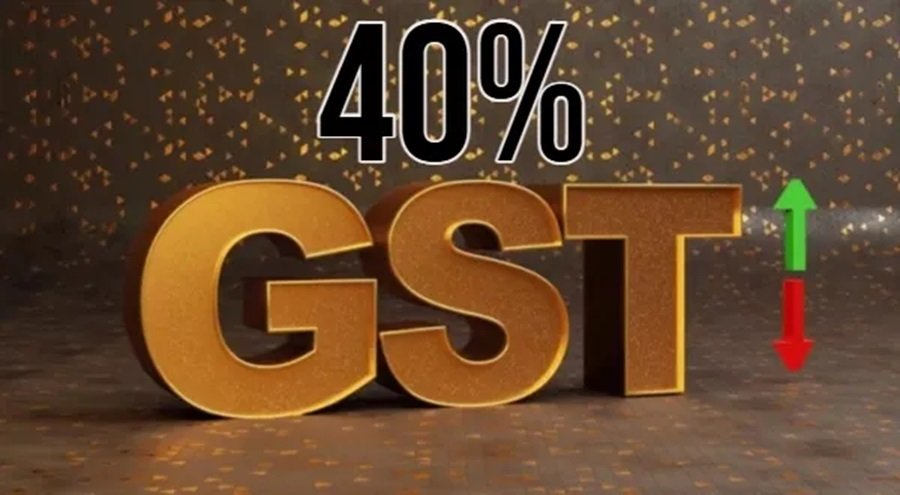GST Council Restructures Tax Slabs: 40% GST to Apply on Cars, Tobacco, Cigarettes, Luxury Goods from Sept 22
- byManasavi
- 04 Sep, 2025

New Delhi, Sept 4, 2025 – The GST Council, chaired by Finance Minister Nirmala Sitharaman, has approved one of the most sweeping reforms since the introduction of the Goods and Services Tax in India. At its 56th meeting held on September 3, the Council announced a rationalization of tax slabs and a new 40% GST rate on selected goods.
Under the revised structure, the 12% and 28% slabs have been scrapped, leaving behind a more streamlined 5% and 18% tax rate system. However, certain products—primarily those classified as luxury or sin goods—will now attract a special 40% GST rate.
What Will Now Attract 40% GST?
Finance Minister Sitharaman clarified that the higher rate will be limited to goods considered harmful to health, high-end luxury items, or products of conspicuous consumption. The list includes:
- Tobacco, pan masala, and cigarettes
- Cars (except small cars)
- Motor vehicles with compression-ignition internal combustion piston engines (diesel or semi-diesel) with engine capacity above 1500cc or length over 4000mm, including hybrid vehicles with e-motors
- Motorcycles with engine capacity exceeding 350cc
- Private aircraft and jets
- Luxury boats, yachts, and vessels for recreation or sports
- Revolvers and pistols (excluding certain defense-related categories)
- Smoking pipes (including pipe bowls), cigar and cigarette holders, and their parts
This move ensures that products with higher social costs or luxury orientation contribute more revenue while essential goods and services remain in lower brackets.
Why the Restructuring Matters
Explaining the decision, Finance Minister Sitharaman said, “This is not just a tax revision but a structural reform aimed at simplifying the GST framework and making life easier for citizens. All decisions were taken unanimously, with no opposition from any state.”
The revised rates will take effect from September 22, 2025, coinciding with the beginning of Navratri.
Impact on Consumers and Industry
For common households, the removal of the 12% and 28% slabs will make many everyday products cheaper. Essential items and mid-range goods are now likely to fall under the 5% or 18% categories, reducing consumer expenditure in several segments.
However, those purchasing luxury vehicles, premium motorcycles, yachts, or using tobacco products will face higher costs. For instance:
- A premium car priced at ₹20 lakh previously taxed at 28% would now fall under the 40% bracket, raising its on-road price significantly.
- A high-capacity motorcycle or imported yacht will also see sharp price hikes.
- Cigarettes, tobacco, and pan masala will become more expensive, aligning with the government’s public health objectives.
Industry experts say the dual impact of lower GST on essentials and higher GST on luxury/sin goods could help balance fiscal revenue while supporting middle-class consumption.
Economic and Social Implications
- Revenue Boost for Government – Higher tax on luxury goods and tobacco will provide additional revenue without burdening the masses.
- Public Health Support – Costlier cigarettes and tobacco products align with health policies discouraging consumption.
- Encouraging Fair Taxation – By lowering slabs for mass-market goods, the government ensures affordability for the average consumer.
Economists also believe this restructuring could improve compliance, as a simpler two-tier GST system (5% and 18%) is easier for businesses to manage.
Bottom Line
Starting September 22, India’s GST landscape will undergo a significant shift. While most goods and services will become cheaper due to the scrapping of the 12% and 28% slabs, certain categories—including cars, cigarettes, luxury motorcycles, yachts, and private jets—will now face a steep 40% GST rate.
The government has positioned this as both a structural reform for simplification and a step towards responsible consumption, making essentials affordable while ensuring luxury and sin goods bear the tax burden.




